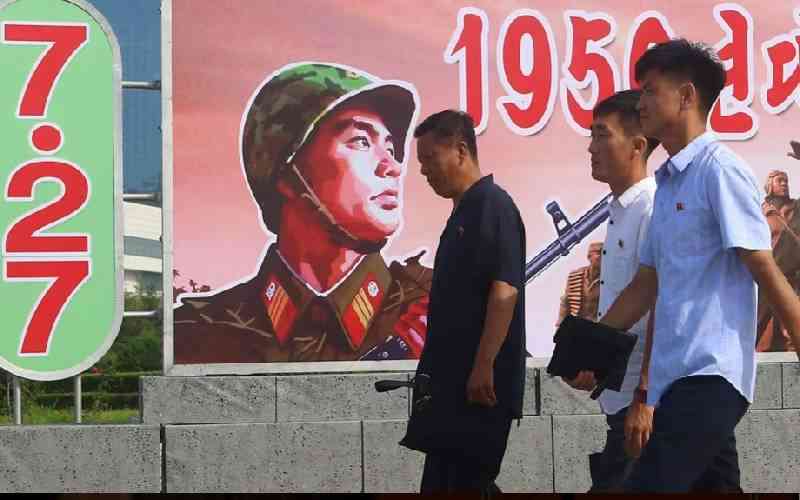×
The Standard e-Paper
Smart Minds Choose Us

North Korea displayed nuclear-capable missiles and new attack drones in a large military parade staged in Pyongyang for leader Kim Jong Un and visiting delegations from China and Russia, North Korean state media reported Friday.
The widely anticipated parade Thursday night commemorated the 70th anniversary of the end of the Korean War, celebrated in North Korea as "Victory Day."